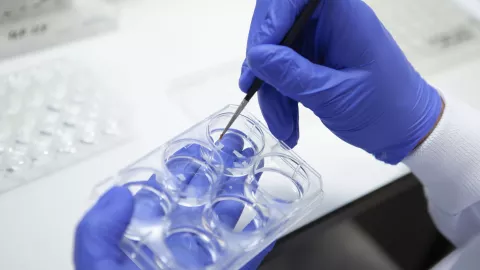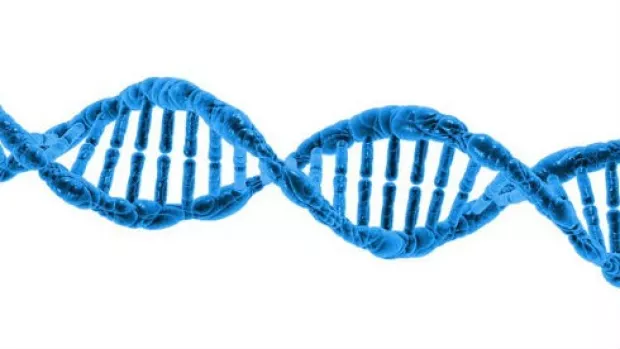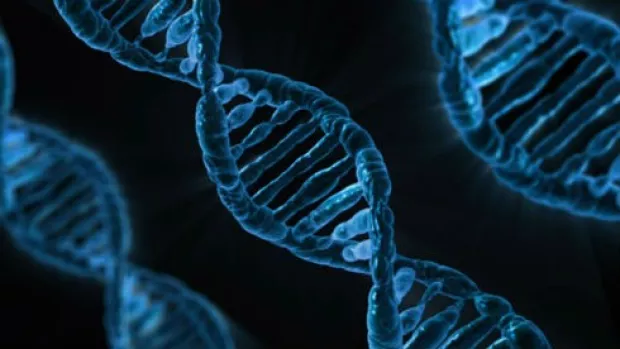
Genetics and MS
Genetics is the study of our genes and how they might be linked to conditions like MS. We've learned a lot about how genes might influence the risk of developing MS in recent years.
About genetics and MS
What are genes?
Genes are instructions for our bodies, a code passed on from our parents that influences characteristics like our height and hair colour. Each of us has a complete set of around 20,000 genes. We have two copies of each gene, one inherited from each of our parents.
Genes can also affect our chances of developing certain health conditions, including MS. This can happen if the copy of the gene we inherit from our parents is changed slightly. These changes - or mutations - can lead to health conditions. Some conditions are caused by a single small change to one gene. In MS, it's less simple.
Do genes play a role in MS?
Genes do play a role in MS, but they’re only part of the story. There’s no single gene that will definitely cause someone to develop MS, but we know that having certain versions of particular genes can make a person more susceptible. So far we’ve discovered over 200 genes that are linked to MS.
But most people with these genes won’t develop MS. That’s because environmental and lifestyle factors (like infections, low levels of vitamin D and smoking) also play a role in developing MS. This means that someone who carries some of the risk factor genes still needs to be exposed to environmental factors to trigger the condition.
Researchers are working hard to understand how genes and environmental factors interact to cause MS. We can use this to design strategies that reduce the risk of developing MS.
Read more about the causes of MS
Can MS be passed on in families?
MS is not passed directly from parents to their children because it's not caused by a single gene. While MS can occur more than once in a family, it’s more likely that this won’t happen.
In the UK, around one person in every 500 currently has MS.
We can work out the chances of relatives developing MS by studying the history of MS in families around the world. The chances of someone developing MS themself, if they have a relative with MS, is about:
- 1 in 67, if they have one parent who has MS
- 1 in 37, if they have a sibling who has MS
- 1 in 5, if they have an identical twin who has MS
What can we learn from genetics research in MS?
Studying the genes linked to MS can help us to understand why certain people are more likely to develop MS.
We can use this information to design strategies that reduce the risk of developing MS. We can also learn more about how MS develops, by investigating what each gene does. We can use this knowledge to develop new treatments for MS. This type of approach has been successfully used in diabetes, where a potential treatment was developed to target a gene linked to the condition.
Latest genetics research for MS
So far we’ve discovered over 200 genes that are linked to MS. Many of these genes play a role in the immune system, and some have already been linked to other autoimmune conditions like Crohn’s disease and rheumatoid arthritis.
Interestingly, some of the genes have been linked to vitamin D. In 2015, researchers identified four genes that were linked to vitamin D levels. They found that people who carried these genes (and therefore had lower vitamin D levels) were more likely to develop MS.
In 2009, our researchers showed that a gene linked to MS can respond to vitamin D. Researchers found that when levels of vitamin D increased, the gene was more active. This ground breaking research could help us understand more about the role vitamin D plays in developing MS.
Read more about vitamin D and MS
In 2016 a genetics study revealed a link between body mass index (BMI) and MS. Researchers found that people who are genetically predisposed to having a higher BMI are more likely to develop MS. This supports previous research that's linked obesity with a higher risk of developing MS.
In 2023, researchers discovered a variation in a small portion of DNA in some people with MS, which is associated with faster progression of MS.
Read more on the research into DNA and MS
Our genetics research
We're funding a number of projects to understand how genes play a role in MS. These include:
Genes in people from different ancestral backgrounds and MS
We're funding research to look at the genes of people with MS from non-European ancestries, so that we can get a better understanding of MS risk factors.
By finding genes that might increase the risk of MS in people from diverse ancestral backgrounds, it will help researchers to better understand the condition. It could lead to better treatments, and more personalised care for people with MS, especially those from non-European ancestries.
Pregnancy, genes and MS
Many women with MS experience fewer relapses during pregnancy. We don't know exactly why, but it suggests that in pregnancy, women’s bodies are able to suppress MS to some extent. If we can understand how this happens, it could lead to more targeted, better treatments for people living with MS.
We're funding research to analyse the genes expressed in individual immune cells in blood samples from people with MS before, during and after their pregnancy. These findings will hopefully identify biological pathways important in reducing the effects of MS, and potentially find possible new treatment targets.




